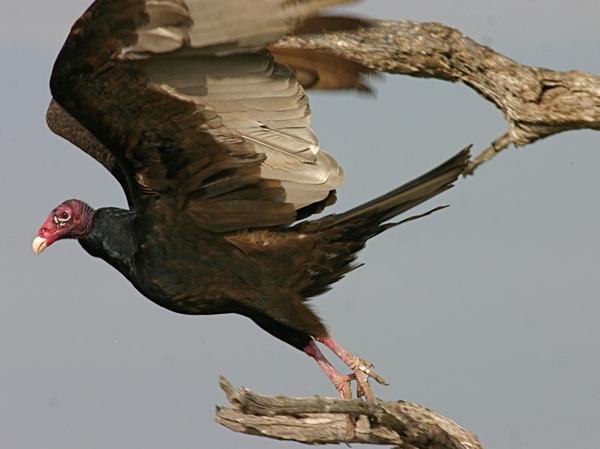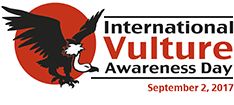
Have you ever smelled a dead animal rotting in the summer heat? Even if you don’t know where the smell is located you give it a wide berth.
Humans eat dead things but we can’t eat spoiled dead things. In the 200,000 years of our species existence those who were not repulsed by or could not smell rotting food did not live long. Refusing to touch spoiled meat is a life-saving trait.
Sadly vultures get a bad name for removing the very things we can’t afford to touch. “Eeeww,” we think, “that bird is eating something vile.” But it’s actually a good thing that they do this.
Vultures are nature’s clean up crew. They can safely eat rabid and anthrax-infected carcasses because their stomach acids kill the deadly toxins, removing them from the environment.
What would happen if there weren’t any vultures? India knows what it’s like.
99.9% of the vultures in India, Pakistan and Nepal died off in the last 25 years due to diclofenac, a painkiller given to cattle that’s deadly to vultures. Since then rotting carcasses have infected drinking water and the rat and wild dog populations have soared. However, unlike vultures the mammal scavengers contract rabies, anthrax and plague from the carcasses they eat and then spread the diseases to humans. 30,000 people now die of rabies in India each year.
Thankfully our vultures are alive and well in North America and tomorrow’s a good day to learn about them. Saturday Sept 2, 2017 is International Vulture Awareness Day.
Click this link for a list of activities planned around the world including a celebration hosted by the Avian Conservation Center of Appalachia at Coopers Rock State Forest in West Virginia. Stop by the parking lot/pavilions near the Gift shop to join the fun.
Thank a vulture this weekend!
(photo by Chuck Tague)

I watch a flock or two dozen or so roosting in a large dead tree in Mercer County. They arrive in late afternoon and spend the night. They start moving around in early morning spreading their wings to dry. By mid morning they are off to find the days harvest. Interesting creatures.
Question, I see crows all the time chowing down road kill. Turkey vultures not. Why is that? I see them, that is Turkey vultures, all the time on the wing and roosting on cell towers but I never see them eating a kill. So, when and what are they eating? Are they just more secretive and stealthy in their eating habits?
Appreciate what others have observed.
Gene
Good question, Gene. I know that turkey vultures can’t fly up off the road as fast as crows can to avoid being hit by cars. Maybe the vultures learned something about traffic so they aren’t seen – by cars – as often. But I really don’t know.
Interesting things about the vulture die-off in India I learned at a program at the Aviary years ago.
Diclofenac was not only used on animals, but humans took it too. And in India (at least parts of India) they didn’t bury humans who had died, but put the corpses on high towers and let the vultures have them. Clean-up crew indeed!
And that was another way the vultures were exposed to Diclofenac which was so devastating to the population. And there was an active recovery-repopulation program ongoing in that region for the vultures. Unfortunately, I don’t have any idea how well it worked or is working.
To answer my own question, I guess because like you say they are slow on take-off they avoid interruptions. Thus I guess they seek kills on less traveled roads or have their favorite dump site they prefer to pilfer.
My work frequently takes me to extremely rural areas of western Pennsylvania, northern West Virginia & eastern Ohio. The roads are little traveled, I can go an hour without seeing another vehicle. But, where there is a road, there will be road kill. On these seldom used roads, I do see Turkey Vultures dining on road kill. They are very skittish, & take to the air quickly when I approach. Sometimes they will move just off the road & roost, watching me watching them. They will never go back to eating while I am watching. I would say they are very careful & skittish. Their numbers really seem to be increasing, I really like watching them soar.